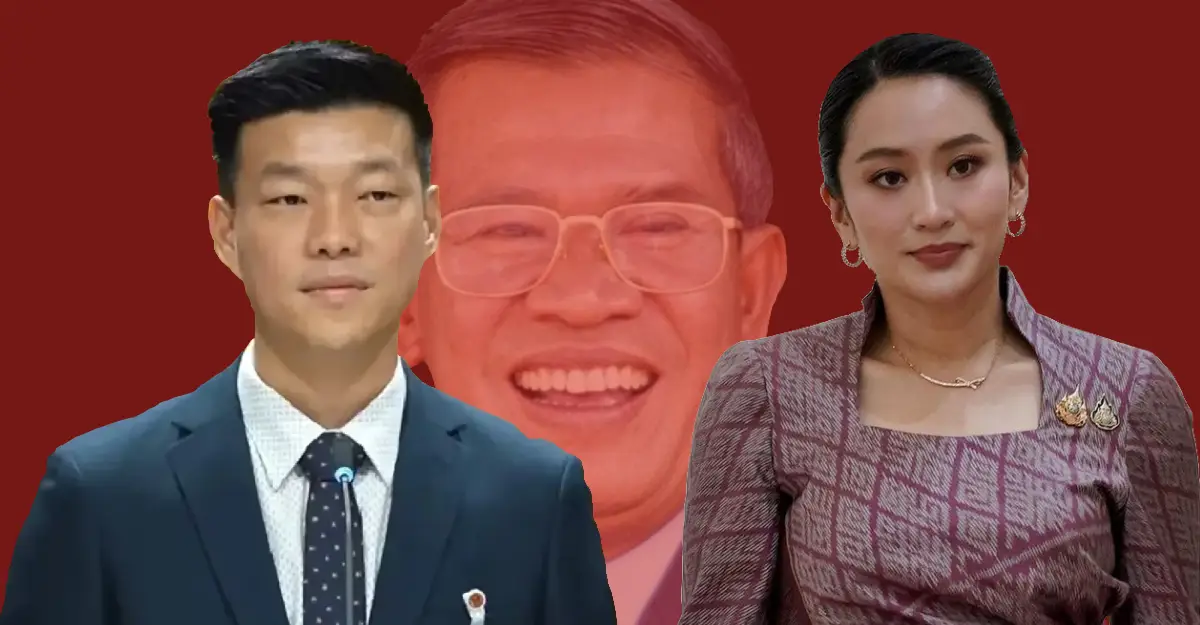Thailand’s Prime Minister Paetongtarn Shinawatra, aged 38, is grappling with a deepening political crisis following the leak of a private phone call with Cambodia’s former prime minister and current Senate president, Hun Sen. The 17-minute conversation, recorded on June 15, 2025, and released in stages starting June 18, has ignited mass protests in Bangkok, destabilized Thailand’s coalition government, and strained diplomatic relations with Cambodia. The leak, described by Thailand’s Foreign Ministry as a “serious violation of trust,” has fueled nationalist outrage and raised concerns across Southeast Asia about the fragility of diplomatic norms. As Paetongtarn faces a no-confidence vote on July 7, the fallout from Hun Sen’s actions threatens both her leadership and regional stability.
A Breach of Diplomatic Trust
The leaked call, first made public through Cambodian media and later posted in full on Hun Sen’s Facebook page, captured Paetongtarn urging Hun Sen to disregard statements from the commander of Thailand’s Second Army Area, responsible for the northeastern border region. The conversation followed a May 28 clash near the Cambodian border that killed one Cambodian soldier, heightening tensions over the disputed Preah Vihear temple area, a UNESCO World Heritage site awarded to Cambodia in 1962. Paetongtarn’s remarks, intended as a private diplomatic effort to de-escalate, were perceived by critics as undermining Thailand’s military and, by extension, national sovereignty. The leak is a breach of diplomatic etiquette that undermines conduct between neighboring countries, and Thailand has summoned Cambodia’s ambassador to lodge a formal protest, according to Thai PBS World.
The incident has disrupted plans for a 10 billion Thai Baht (~US$280 million) trade zone near the Preah Vihear temple, with Thailand rejecting Cambodia’s push for International Court of Justice involvement in ongoing border disputes, per The Irrawaddy. The breach has drawn criticism across Southeast Asia, with analysts warning of “diplomatic authority drift,” where figures like Hun Sen, no longer in executive roles, disrupt formal diplomacy.
Hun Sen’s Actions Under Scrutiny
Speculation surrounds Hun Sen’s motives for leaking the call, though no direct evidence confirms his intentions. Some analysts suggest he aimed to weaken Paetongtarn’s government or retaliate against Thailand’s reluctance to advance the trade zone project near the Preah Vihear temple. On June 27, Hun Sen escalated tensions by accusing Paetongtarn of insulting Thailand’s monarchy, predicting her ouster within months, according to Thai PBS World. His hours-long televised speech was viewed as “extraordinary”, further inflaming bilateral tensions. Across Southeast Asia, the incident has sparked alarm about the precedent set by such a breach of trust, with ASEAN leaders monitoring the situation closely. The episode has cast a shadow over regional cooperation, with joint projects at risk and Cambodia’s vow to pursue legal action over border issues adding to the strain.
Protests and Political Instability in Thailand
The leak has triggered significant domestic fallout in Thailand, where Paetongtarn’s coalition government faces mounting pressure. The Bhumjaithai Party, a key coalition partner, withdrew support from Thailand’s government in June 2025, citing concerns over Prime Minister Paetongtarn Shinawatra’s handling of military relations following a leaked phone call. This left the Pheu Thai-led coalition with a fragile majority of approximately 260–270 seats in the 500-seat House of Representatives, according to multiple sources.
On June 28, thousands gathered at Bangkok’s Victory Monument, braving heavy rain to demand Paetongtarn’s resignation, according to Reuters and Thai PBS World. Protesters, including royalist-aligned groups, criticized her for discussing military matters with Hun Sen, viewing it as a betrayal of national pride. A protester named Kaewta said “You can’t speak that way about our army to foreigners.” A German named Christian traveled from Phuket with his Thai partner to support the protest saying “I love Thailand and it want it to be successful. I don’t think airing dirty laundry like this [referring to Hun Sen] is the right way to do it, but the government and military needs to be aligned otherwise … look around you, the people aren’t happy” and “to be honest with you, the opposition party probably has a hand in organizing this protest and that’s why Thailand is getting a bad name because of unstable politics.”
Paetongtarn apologized on June 20, clarifying that her comments were a negotiation tactic and affirming her commitment to military unity, but she vowed not to engage privately with Hun Sen again, citing his breach of trust, per Thai PBS World. Despite her efforts, the protests and the looming no-confidence vote threaten her leadership. Thailand’s history of political upheaval—marked by coups in 2006 and 2014 against Paetongtarn’s father, Thaksin, and aunt, Yingluck—looms large. While the military and Constitutional Court have remained neutral as of June 28, their historical roles as political arbiters raise concerns about potential intervention if unrest escalates.
Regional and Domestic Ramifications
The crisis has exposed vulnerabilities in Thailand’s political system and ASEAN’s diplomatic framework. Paetongtarn’s leadership faces a three-front challenge: public protests, a weakened coalition, and strained international relations. Economic frustrations, including a sluggish post-Covid recovery and 3.2% inflation in May 2025, have fueled public discontent, with protesters citing unmet promises on jobs and economic relief, per the Thailand Development Research Institute. The leak has amplified Thailand’s deep political divisions, pitting Pheu Thai’s rural supporters against urban and royalist factions.
As Thailand approaches the July 7 parliamentary session, the no-confidence vote could determine Paetongtarn’s fate. The crisis also poses broader questions for ASEAN about maintaining trust in diplomatic engagements. With bilateral projects stalled and public anger mounting, Thailand stands at a critical juncture, its political and regional stability hanging in the balance.















